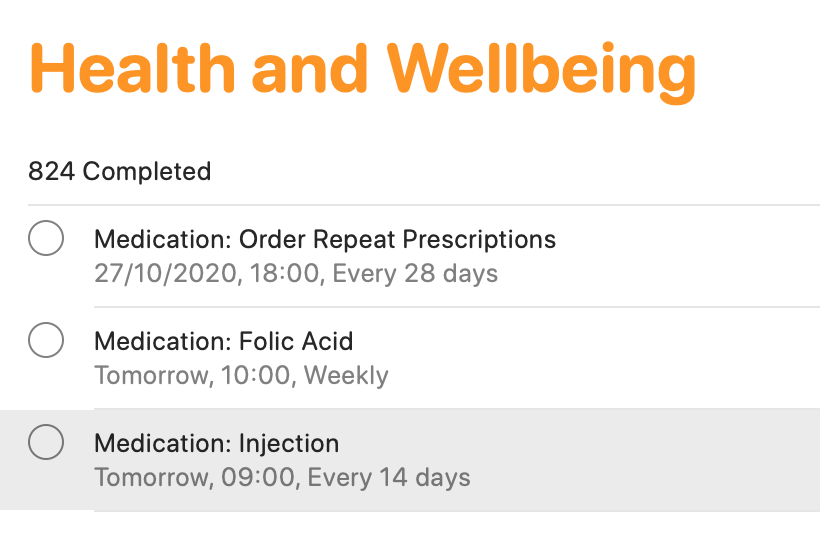As part of the Advances in Inflammatory Bowel Diseases (AIBD) conference, I joined Session V: 2020 Editor’s Focus, introduced by Miguel Regueiro and moderated by David Rubin. In the session, David, alongside Gary Lichtenstein, Jean-Frederic Colombel, and Raymond Cross showcased some notable pieces of research that had been published in various gastroenterology journals throughout 2020. These were followed by the best clinical abstract research presentation by Shintaro Akiyama, and a summary of the pregnancy and IBD study called ‘PIANO’ by Uma Mahadevan.
Notable papers from four different gastroenterology journals were discussed. The journals included Gastroenterology https://www.gastrojournal.org, the American Journal of Gastroenterology https://journals.lww.com/ajg/pages/default.aspx, Clinical Gastroenterology and Hepatology https://www.cghjournal.org, and Inflammatory Bowel Diseases® https://academic.oup.com/ibdjournal.
Managing IBD during the COVID-19 pandemic
David Rubin and colleagues published an article about managing IBD during the COVID-19 pandemic (https://www.gastrojournal.org/article/S0016-5085(20)30482-0/fulltext). The key take home messages from this article were that:
people with IBD do not appear to be at a high risk for infection with SARS-CoV-2, the coronavirus which causes COVID-19;
People with IBD who aren’t infected with SARS-CoV-2 should not stop their IBD treatment;
People with IBD who are infected with SARS-CoV-2 but have not developed symptoms of COVID-19 should temporarily stop methotrexate, thiopurines (e.g. azathioprine, 6-mercaptopurine, thioguanine), and tofacitinib, while delaying biologics for two weeks while monitoring for symptoms of COVID-19;
People with IBD who develop COVID-19 should temporarily stop methotrexate, thiopurines, and tofacitinib, and biologics, until their symptoms have gone, or if available, when a follow-up test comes back negative;
The severity of COVID-19 and IBD should result in a careful risk-benefit decision regarding COVID-19 treatment and IBD treatment.
One study by Erica Brenner and colleagues (https://www.gastrojournal.org/article/S0016-5085(20)30655-7/pdf) found that steroids, but not anti-TNF biologics (e.g., adalimumab, certolizumab, golimumab, infliximab), are associated with worst COVID-19 outcomes in people with inflammatory bowel diseases (IBD), providing some reassurance for those on anti-TNFs.
Identifying people with Crohn’s disease who are more likely to fail on certain biologics
Aleksejs Sazonovs and colleagues in the UK published a paper (https://www.gastrojournal.org/article/S0016-5085(19)41414-5/abstract) which looked at a new way of potentially predicting those people with Crohn’s disease who may develop anti-drug antibodies to infliximab and adalimumab. When people develop anti-drug antibodies to biologics, they can become ineffective, resulting in a change in treatment. This study found that a particular variation of a gene, called HLA-DQA1*05, was linked with an increased chance of developing anti-drug antibodies to infliximab and adalimumab in people with Crohn’s disease. Although further research is needed, if this finding is proven, it could mean that people with this type of gene could be identified before starting treatment, so that they could be placed on different treatments or combinations of treatments to help prevent the development of anti-drug antibodies.
Low FODMAP diet does not influence microbiome
Cox and colleagues performed a study in people with inactive IBD looking at the FODMAP (fermentable oligosaccharides, disaccharides, monosaccharides and polyols) diet. They looked for an effect on symptoms, the fecal microbiome, and markers of inflammation. Although a low FODMAP diet appeared to improve irritable bowel symptoms, the researchers did not find any difference in the composition of the microbiome and markers of inflammation. They concluded that they don’t really know whether a low FODMAP diet has anti-inflammatory effects for those with IBD.
Safety of newer medicines called JAK inhibitors
Olivera and colleagues looked at the safety of a newer type of medicine used to treat IBD (and other immune-related conditions) called JAK inhibitors (short for Janus Kinase inhibitors). The only JAK inhibitor medicine approved in Ulcerative Colitis is called Tofacitinib, although there are others available and licensed in rheumatology. The researchers looked for the risk of serious infections and infection with the varicella-zoster virus (herpes zoster infection). Compared to other treatments, serious infection risk with JAK inhibitors were no different than other treatments used. However, there was an increased risk of herpes zoster with JAK inhibitors. Therefore, people starting these treatments should receive a vaccination against herpes zoster.
Differences in IBD gut microbiota
Pittayanon and colleagues looked for differences in gut microbiota in people with and without IBD. Although some differences between Crohn’s disease and ulcerative colitis were seen, the researchers concluded that while there were some differences between people with and without IBD, these findings were not consistent.
Promising results from a new biologic called Mirikizumab
Sandborn and colleagues presented findings from a Phase 2 clinical study on a new biologic called mirikizumab in people with ulcerative colitis. Mirikizumab is known as an anti-IL-23 biologic, since it attaches to IL-23, an inflammatory molecule in the body involved in IBD. The study looked at clinical remission, clinical response and improves on endoscope at 12 weeks. The results were positive and showed that the 200 mg dose seemed to be more effective than 600 mg. As a result, mirikizumab would move into a larger phase 3 clinical study in a larger group of people.
Subcutaneous injection of vedolizumab in ulcerative colitis
Sandborn and colleagues also looked at the effects and safety of vedolizumab as a subcutaneous (under the skin) injection, compared to intravenous vedolizumab, which is how it is currently given. In people with ulcerative colitis, the subcutaneous injection had the same effects and safety as the intravenous version. The researchers now wait for the subcutaneous injection to be approved by the medicine regulators. They then expect doctors to begin moving some people with ulcerative colitis over to the subcutaneous injection, which may provide some more convenience for people to fit treatment around their daily lives.
New oral medicine called Etrasimod appears to be effective in ulcerative colitis
Sandborn and colleagues found that a new medicine called Etrasimod at a dose of 2 mg was more effective than placebo, and the study would be progressing from a Phase 2 to Phase 3 study in ulcerative colitis. Etrasimod is a next-generation, once-daily, oral treatment which changes signals within cells involved in inflammation.
Another new oral medicine called Mongersen does not appear to be effective in Crohn’s disease
Sands and colleagues published the findings of a phase 3 study of Mongersen, an oral medicine that targets inflammatory signals in gut cells, in people with Crohn’s disease. Although the phase 2 study showed promising results, the phase 3 study was disappointing, showing that clinical remission was no more likely with mongersen than with placebo. The researchers said that reflections on the negative results led to another piece of research to help them learn why the results of this study were negative. These reflections showed how it is important to ensure that the study design is well thought out. They noted that the phase 2 study was performed in a small number of hospitals in Italy, and pointed out that collecting study data from a single centre can risk the future results of studies.
Other research highlights published in IBD journals throughout 2020
Antibiotic-resistant intestinal microbiome can persist in people with pouchitis.
A number of different biomarkers (biological clues) were found to be present years before an IBD diagnosis. This understanding may lead to the development of future trials to prevent IBD for people who are at higher risk, or at least to help ensure people are diagnosed earlier on.
Home infliximab infusions cost more than office and hospital infusions. Home infusion-based patients were also seen to be more likely to not adhere to their treatment, compared to office and hospital-based infusions.
Further studies are required to understand whether further treatment is needed after people have been in hospital with IBD to prevent acute venous thromboembolism (blood clot) within 60 days of being in hospital.
Imaging of the anus using Magnetic resonance (MR) enterography can reveal unsuspected perianal fistulas in people with Crohn’s disease.
IBD-attributable hospital costs declined modestly over time for people with Crohn’s disease, but did not change for people with ulcerative colitis.
Anxiety and mood disorders increased the risk of stopping anti-TNF biologics, especially during the first year following treatment initiation in over 1000 patients.
Curcumin was shown to not be effective in preventing post-operative recurrence of Crohn’s disease.
A Mediterranean diet can improve body composition, liver steatosis and disease activity in IBD.
High levels of certain while blood cells called eosinophils is more common in paediatric-onset IBD and is associated with a more severe disease course.
Primary sclerosing cholangitis-ulcerative colitis (PSC-UC) is a milder form of ulcerative colitis and should be regarded as a unique form of UC. People with PSC-tend to be younger at diagnosis and have milder disease severity, despite being more likely to have inflammation of the entire colon. Response to treatment similar to people with ulcerative colitis.
Daily aspirin use is not associated with worsening IBD.
Infliximab is not associated with excess weight gain in women with IBD.
Cumulative histologic disease activity is associated with neoplasia in chronic colitis.
Anti-TNF biologic use is associated with lower rates of colon cancer, as shown by analysis of the Explores EMR database between 1999 and 2020. Anti-TNF biologics on their own or given with other treatment reduced the rate of colon cancer.
The prevalence of anxiety, depression, and post-traumatic stress disorder (PTSD) over a 15-year time period in veterans with IBD was shown to be increasing.
High dose flu vaccinations are associated with better response to vaccine in people receiving anti-TNF biologics.
A Canadian based study in 2016 estimated the cost of IBD, at $ 498 bn for Crohn’s disease, and $ 377 bn for ulcerative colitis. Pharmacy costs were shown to have the largest incremental cost.
Direct healthcare costs attributable to IBD have more than doubled over 10 years between 2005 and 2015, driven mostly by increasing expenditures on biologic medicine.
The Crohn’s and Colitis Foundation’s Cost of IBD Care Initiative also reported the cost of IBD care to be high. From a study with over 50,000 people with IBD, the average direct costs per year were $ 22,987 per person. Costs per year increased significantly from 2013, driven by the cost of biologics, opioids, steroids, and emergency department use, among other factors.
High deductible health plans do not decrease costs and are associated with delays in essential care.
Best clinical abstract research presentation - winner of the best clinical abstract
Shintaro Akiyama looked at contributing factors for fistula development in people with IBD treated with proctocolectomy (surgical removal of the colon and rectum), with ileal pouch-anal anastomosis (J-pouch surgery). He found that pouchitis (inflammation of the lining of a pouch created during surgery) can develop in up to 70% of people with IBD after J-pouch surgery. He also highlighted that not all instances of pouchitis are the same, which has led to the development of the Chicago Classification of Pouchitis. He concluded that deep inflammation of the resected colon is a specific predictor for fistula formation in J Pouch, and so people with this may require closer monitoring by their healthcare teams.
Pregnancy and IBD - The PIANO study
Uma Mahadevan talked about the 12-year PIANO study, which included over 1700 pregnant women with IBD in the US. The study is still ongoing and still recruiting those on biologics or small molecules. Of 1490 women with a pregnancy outcome, the average maternal age at delivery was approximately 32 years, with a total pregnancies averaging 2.1. The womens’ disease duration was around 8.3 years, with 62% having Crohn’s disease, 36% having ulcerative colitis, 2% having undifferentiated IBD. Most of them were on infliximab, followed by adalimumab, certolizumab, golimumab, natalizumab, vedolizumab, and ustekinumab. 51 women had multiple biologic exposure (mostly with other anti-TNF biologics).
She concluded that exposure to biologic, thiopurine or combinations of treatment during pregnancy was not associated with increased negative maternal or fetal outcomes at birth or within the 1st year of life. Disease activity of the mothers is an independent risk factor for spontaneous abortion, and preterm birth increased the risk of infant infections.
Healthcare professionals should continue biologic and/or thiopurine therapy throughout pregnancy and lactation, given no evidence of increase in harm from drug exposure and the clear association of active disease with side effects.












